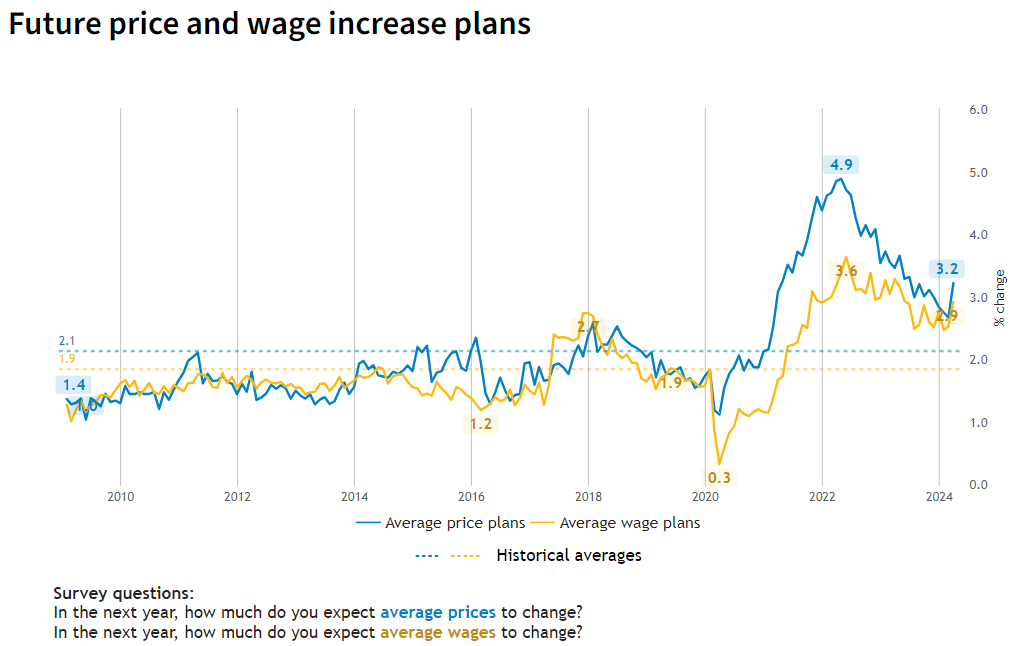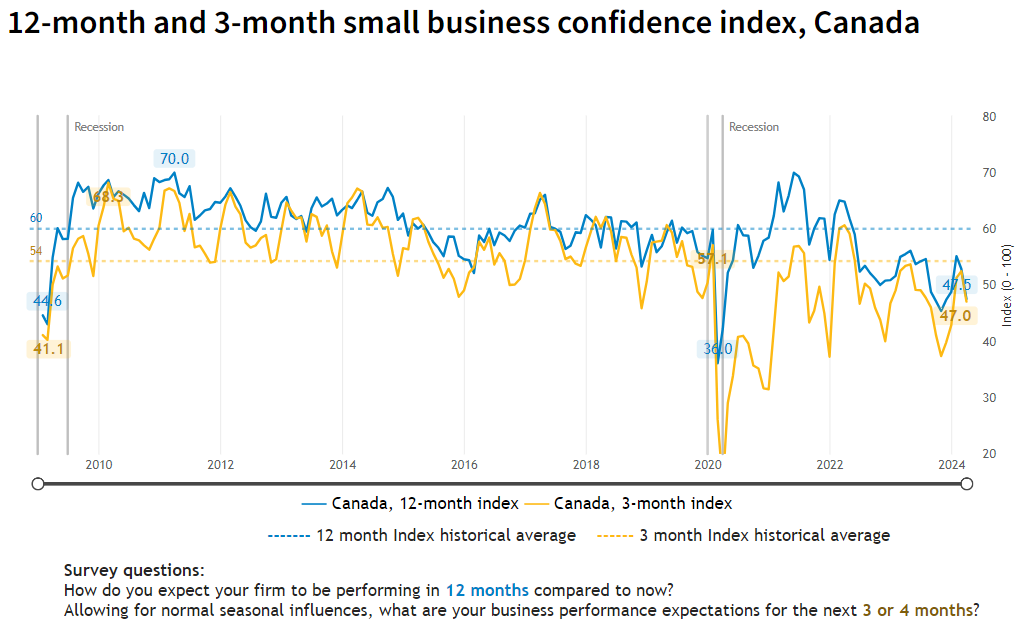
'Small business owners are trying to get back on their feet, but they keep getting knocked down to the ground'

Small employers are looking at a timid hiring season ahead of summer, according to a recent report.
Just 16% of small employers are expecting to hire within the next three to four months, according to the Canadian Federation of Independent Business (CFIB).
Total payroll employment increased by 1.6% in 2024 Q1 following a slight contraction at the end of 2023. Year-over-year, employment is expected to remain 1.1% higher over the first half of 2024, according to the report.
Recently, the federal government officially opened the hiring period under Canada Summer Jobs 2024 (CSJ).
Wet ‘n’ Wild Toronto previously announced it is looking to hire about 500 workers as it prepares for the 2024 summer season.
Small businesses' average price and wage increase plans also climbed to 3.2% and 2.9%, respectively.

Source: CFIB Monthly Business Barometer
The job vacancy rate in Canada’s private sector in Q1 2024 dropped to 3.5% (Figure 1), slowly approaching its 2019 level (3.3%), according to CFIB’s The Main Street Quarterly for Q1 2024.
Meanwhile, 11% of small employers are looking to lay off workers, according to CFIB.
"The 0.5% month-over-month growth in the planned average price increase for the next 12 months is concerning. While one month doesn't set a trend, it shows us the negative headspace many business owners are in right now.
“With recent payroll increases and high wage costs affecting—yet again—a record share (68%) of businesses, it makes sense that they are less likely to hire and expect to raise prices," said Andreea Bourgeois, CFIB's director of economics.
The recent carbon tax hike may also force some firms to pass the additional costs onto consumers, she said.
The slow hiring outlook is due to the dropping business confidence among small employers, according to CFIB.
Tesla, McKinsey & Co. and Novartis have all recently announced layoff plans.
The layoff plans among small employers comes as both the long-term confidence index for the next 12 months dropped 5.4 points down to 47.5. The short-term optimism index, based on a 3-month outlook, also lost five points, and reached 47.0.
Both indexes are at about the same levels as they were at the beginning of the year, according to CFIB’s Business Barometer, based on a survey of 657 of its members, conducted from April 2 to 17.
"Small business owners are trying to get back on their feet, but they keep getting knocked down to the ground. The April 1 carbon tax increase, minimum wage hikes in certain provinces, and persistent lack of demand have all negatively impacted their confidence levels for the coming year," said Bourgeois.

Source: CFIB Monthly Business Barometer